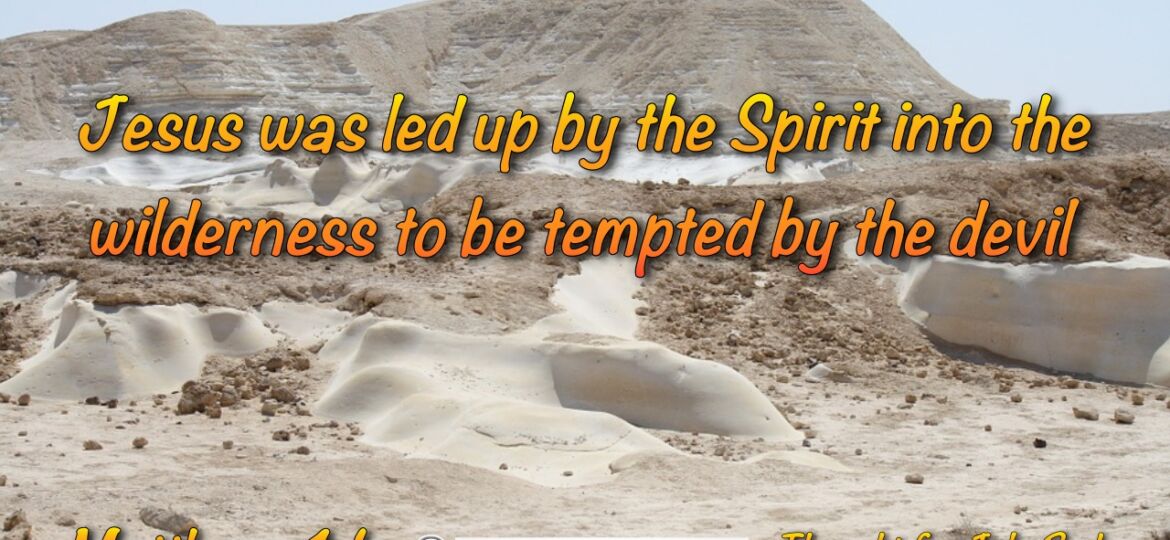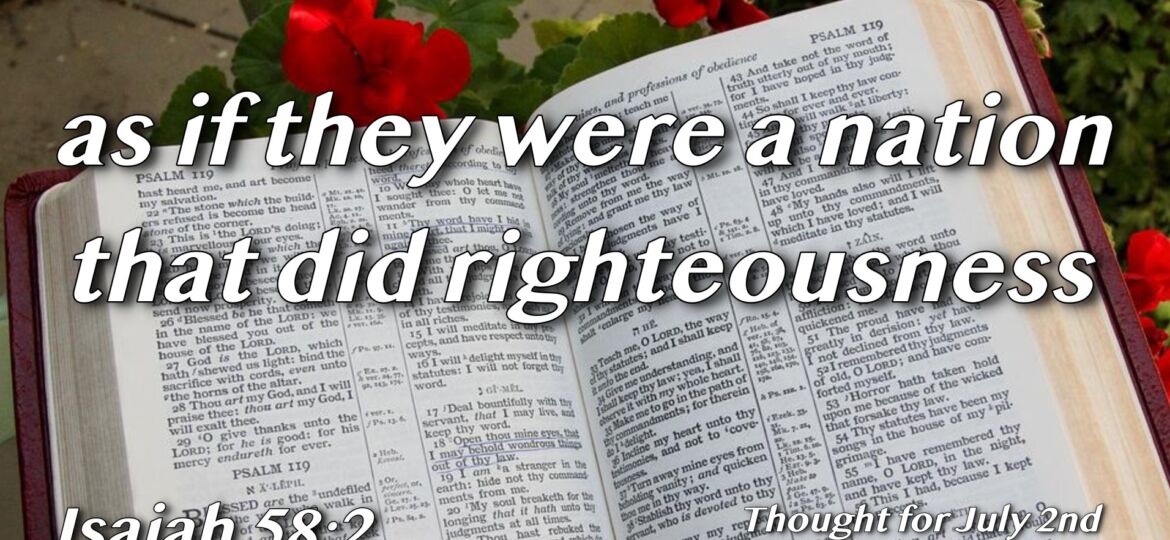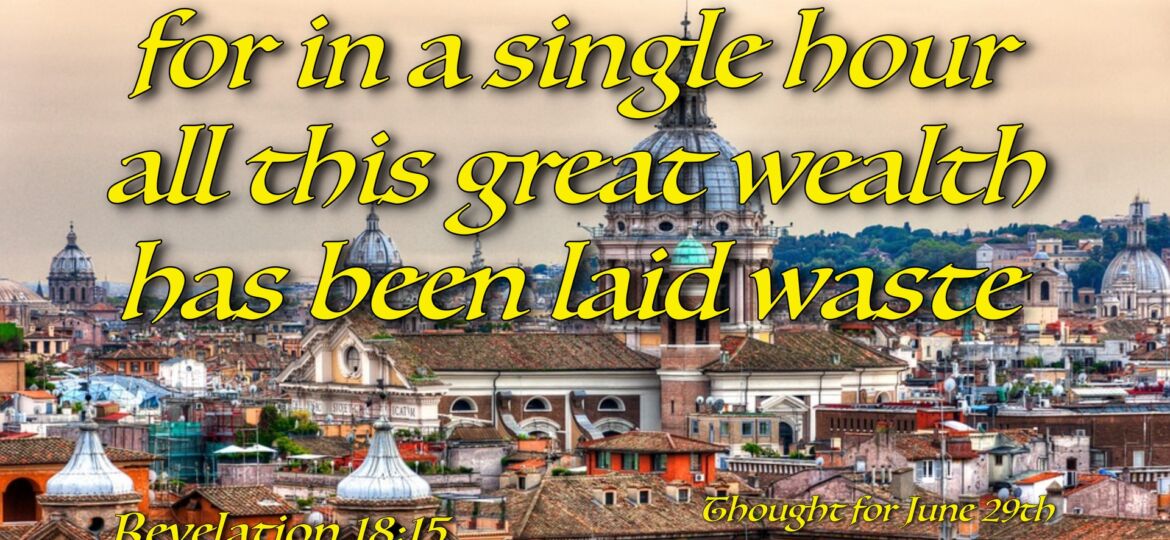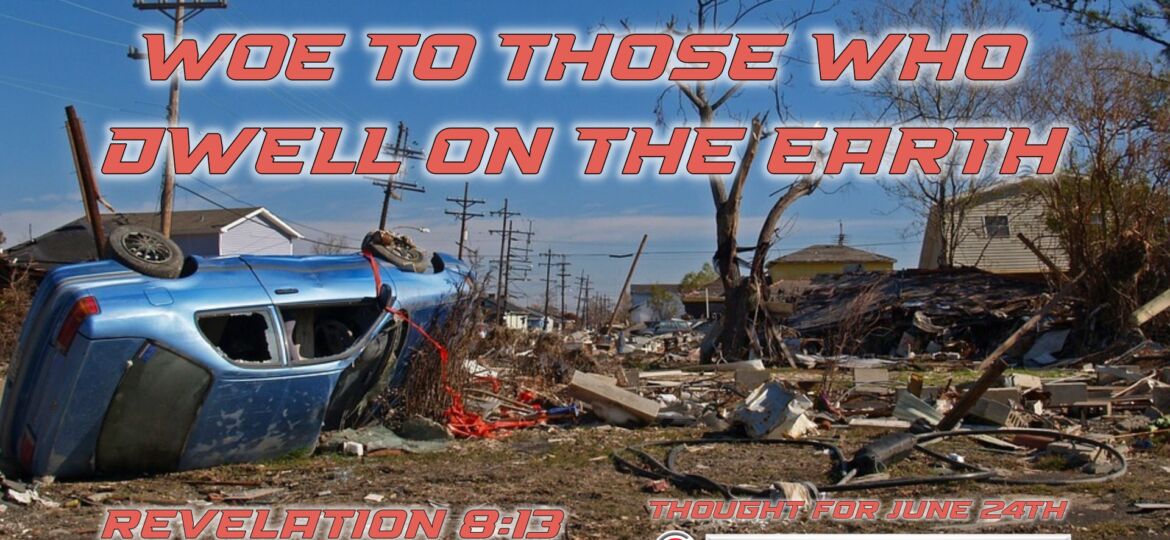Our Matthew reading brings us to the strange account of the temptation of Jesus by the devil. The first point to note is that “Jesus was led up by the Spirit into the wilderness to be tempted by the devil.” [ch.4 v.1] This shows us that it was God’s Spirit that “led” him to a place of temptation away from human inhabitation and 40 days elapsed before “the tempter came” [v.3].
The whole account has a sense of unreality. Did Jesus go literally from the wilderness to the Temple in Jerusalem and climb literally to its pinnacle? (v.5) Did he go to some very high mountain where he could see “all the kingdoms of the world and their glory” [v.8]. No such mountain exists.
Another question – at the time this occurred Jesus had not yet called any disciples, so how did Matthew know to write out this account of his Master’s temptation? Now to seek some answers.
Seeing that Jesus taught so often in parables, some of which could not have been literal, e.g. the Rich Man and Lazarus, we conclude that this account is in the form of a parable that he told his disciples. Notice the main point that is common to each of the temptations: it is that Jesus refuted them by saying “It is written …” [v.4,7,10]. This illustrates the point David makes in Psalm 119, “I have stored up your word in my heart that I might not sin against you.” [v.11] We also recall what James wrote, “each person is tempted when he is lured and enticed by his own desire” [1 v.14] and if we allow this to dominate our thinking then “when it is folly grown (it) brings forth death.” [v.15]
So, before he started his ministry, Jesus was tested by being “led up by the Spirit.” Note how Luke, in his record of Christ’s temptation says that after the temptations the “devil departed from him until an opportune time” [4 v.13]! An example of such a time is in John ch. 6: Jesus became so popular after feeding the 5,000 that “the people … said, ‘This is indeed the prophet who is to come …. perceiving then that they were about to come and take him by force to make him king, Jesus withdrew again to the mountain by himself.” [v.14,15]
This was a repeat of his first temptation in the wilderness, which was in effect, to immediately use his unlimited power to become king and bring great good into the world – but this would be doing the right thing the wrong way! We have to live our lives God’s way! This is why true believers do not involve themselves in the politics of this world.
We also see the reason why Jesus “said to Peter ‘Get behind me Satan!’” [16 v.23] when Peter objected to his words that he was going to suffer and be killed. It was not the personal will of Jesus to die, see ch. 26 v.39. Temptation and testing comes from others as well as from our hearts, Believers in some countries today appreciate what Peter meant when he wrote, “your adversary the devil prowls around like a roaring lion.” [1 Peter 5 v.8] Let us fully grasp James’ point, ”Resist the devil, and he will flee from you. Draw near to God and he will draw near to you” [4 v.7,8] Let us all draw near to God every day; Bible reading and meditation is an essential part of doing that.
[embedyt] https://www.youtube.com/watch?v=MLhDnzkMcGE[/embedyt]










